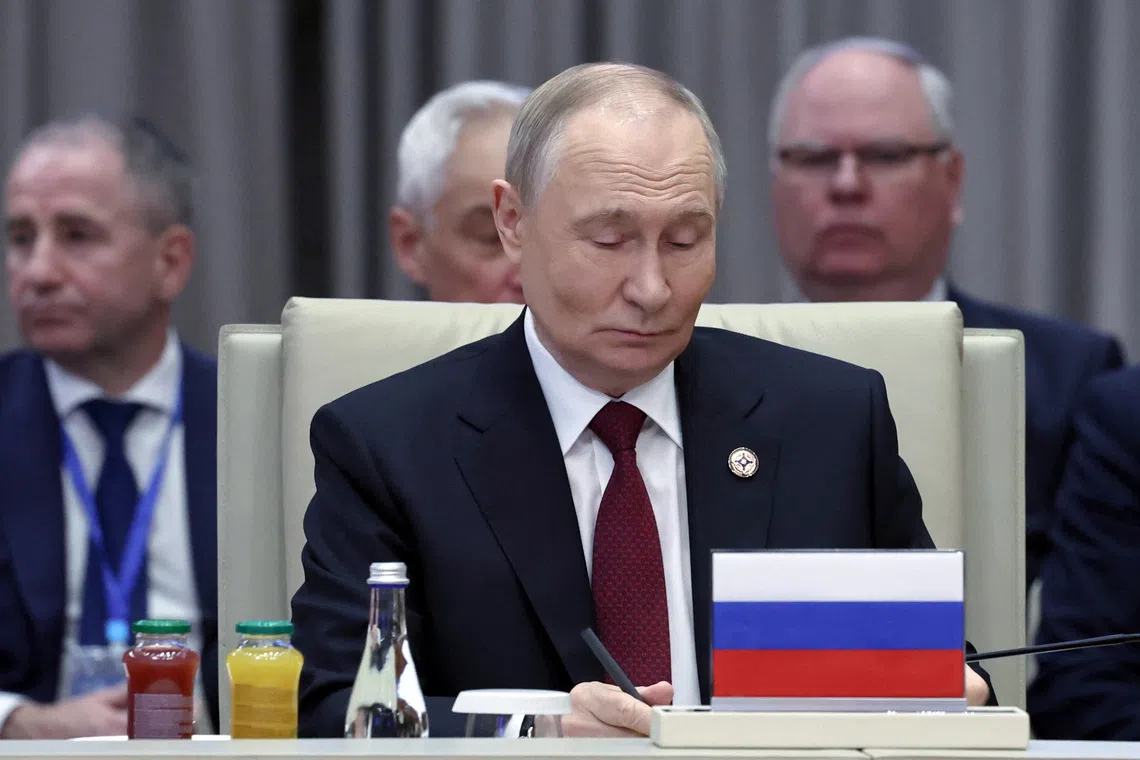Putin says U.S.-Ukraine text could form basis future peace agreement
Sign up now: Get ST's newsletters delivered to your inbox

Russian President Vladimir Putin attends the Collective Security Treaty Organization (CSTO) summit in Bishkek, Kyrgyzstan, November 27, 2025. Sputnik/Alexander Kazakov/Pool via REUTERS ATTENTION EDITORS - THIS IMAGE WAS PROVIDED BY A THIRD PARTY.
Follow topic:
BISHKEK - President Vladimir Putin said on Thursday that the outlines of a draft peace plan discussed by the United States and Ukraine could become the basis of future agreements to end the conflict in Ukraine but that if not then Russia would continue to fight.
"In general, we agree that this can be the basis for future agreements," Putin said, adding that the variant of the plan discussed by the United States and Ukraine in Geneva had been passed to Russia.
Putin said that the United States was taking into account Russia's position but that some things still need to be discussed. He said that if Europe wanted a pledge not to attack it, then Russia was willing to give such a pledge.
Russia, Putin said, was still being told it should cease the fighting.
"Ukrainian troops must withdraw from the territories they hold, and then the fighting will cease. If they don't leave, then we shall achieve this by armed means. That's it," Putin said. Russian forces, he said, were advancing in Ukraine at a faster pace.
Putin said that he considered the Ukrainian leadership to be illegitimate and so it was legally impossible to sign a deal with Ukraine, so it was important to ensure any agreement was recognised by the international community - and that the international community recognised Russian gains in Ukraine.
Putin rejected the suggestion that U.S. envoy Steve Witkoff had shown himself to be biased towards Moscow in peace talks over Ukraine, describing it as nonsense. REUTERS

